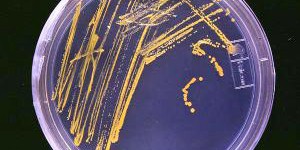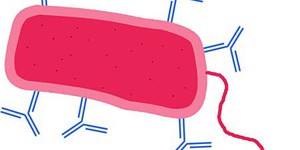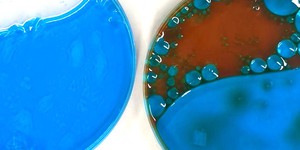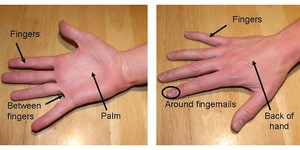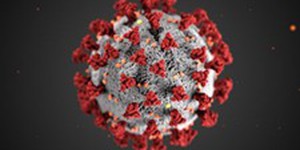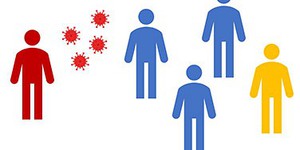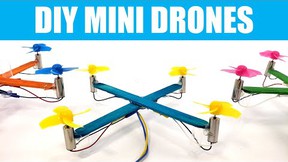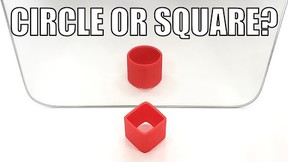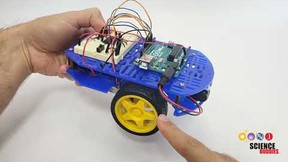Pandemics – COVID-19 Science Projects (13 results)
Humanity has faced pandemics since the beginning of time. The twentieth century saw multiple influenza pandemics, and now we are facing a COVID-19 pandemic caused by a coronavirus.
Coronaviruses are not new to humans or even to you. Coronaviruses are a family of viruses best identified by the crown-like spikes that cover their surface (corona is Latin for 'crown'). Coronaviruses cause upper-respiratory tract illnesses like the common cold and the 2003 SARS and 2012 MERS outbreaks. In the winter of 2019, a new coronavirus, now officially called SARS-CoV-2, emerged in Wuhan, China. The virus made the jump from animals to humans and causes a disease called COVID-19. For some people, often children and young adults, SARS-CoV-2 causes few or no symptoms. For others it can lead to severe lung damage and even death. The virus can be spread fairly easily, including by people who are infected but display no symptoms, and as a result, we are in the middle of a global pandemic, with nearly all countries in the world reporting an increasing number of infected individuals. Scientists and health professionals around the globe are working hard to rapidly learn more about this new coronavirus and the disease it causes and to prevent the spread of COVID-19.
|
Select a resource
Coding Projects
Sort by
|
Germs are everywhere! We try and clean our home with disinfectants, but do we really get rid of all the germs? Find out with this "hands-on" experiment.
Read more
Being sick is no fun, especially when your friends are doing exciting activities that you have to miss out on. Thankfully, common illnesses usually last for just a few days, and then you start to feel better. Why is this? It is thanks to the immune system, which is a group of special organs and cells in your body that constantly work to keep you healthy. In this science project, you will make a simple model to investigate how the immune system defends the human body from common illnesses, and…
Read more
New
Have you ever walked next to your favorite ocean, lake, or creek and seen plastic waste everywhere? Have you ever thought about how much plastic breaks down into microplastics and pollutes waterways? Scientists are coming up with new ways to remove these microplastics from our waterways, and now you can test them out for yourself at home.
Read more
Remember going to the doctor and getting vaccine shots? It is no fun getting poked with a needle, but fortunately, a vaccine helps our immune system to develop protection against a serious illness for years to come. But what about the flu vaccine? How come there is a new one every year? This science fair project will show you why.
Read more
Microbes are everywhere in our environment, but for the most part they escape our notice. This project shows you how to safely culture and study common bacteria from your everyday surroundings.
Read more
Scientists recently found that some small drugs can stop infection by the deadly Ebola virus in
its tracks. Lab researchers found that these drugs bind to a protein that the Ebola virus uses to enter
our cells, and this is how infection is prevented. However, this also means that the bound protein no
longer functions in our cells. How might these drugs accidentally disrupt important biological processes
in our bodies? What other proteins might these drugs bind to? In this science project,…
Read more
New
How do you feel right now? Do you remember how you felt a few hours ago? How about yesterday or last Wednesday? What if you could track your emotions throughout the day and use this information to help improve your mood and well-being? In this science project, you will program a simple, pocket-sized device that you can carry around with you to log your feelings whenever you want or on a specific schedule.
Read more
Stopping a viral outbreak like COVID-19 takes more than luck, it takes public health tools. Vaccines are considered to be one of the best public health tools, which is why there is often a rush to develop good vaccines for newly discovered viruses, particularly those that have the potential to infect lots of people. Recent examples include COVID-19, Zika virus, and Ebola. If enough people are vaccinated, an effective vaccine can help stop outbreaks or even eradicate (completely get rid of) a…
Read more
Do you wash your hands? You should— it's the best way to prevent the spread of germs. But germs can be tricky; they find nooks and crannies to hide in, so it takes good hand-washing technique to get rid of them. In this science project, you'll investigate which parts of the hand are the most difficult to wash germs off of.
Read more
Over time, viruses evolve. Their evolution is influenced by both neutral drift, the natural mutation rate of the virus, and selective pressure from the hosts' immune systems. Scientists study a virus's genomic evolution—the changes at the nucleotide and amino acid level—to better understand how the virus is spreading and the clinical implications. You can use public databases and tools to do the same type of tracking and analysis of COVID-19 that scientists around the world do. …
Read more
One strategy you may have heard suggested for dealing with the COVID-19 epidemic is to let nature take its course and let COVID-19 infect enough of the population for us to reach the herd immunity threshold. Does this make sense as a public health strategy? You can explore this question scientifically using SimPandemic, a free online tool for modeling infectious disease outbreaks.
Before you begin, you will need to know a bit about herd immunity. Herd immunity, sometimes called community…
Read more
Unlocking the three-dimensional structure of a protein is crucial to help scientists understand how it functions in our bodies and how it can cause devastating diseases if it becomes disrupted or interacts in the wrong way. However, figuring out the structure of a protein in three-dimensional space can be very challenging. Proteins are the functional units of our cells, and every protein is made up of a long chain of amino acids. Amino acids come in different shapes and sizes, and they have…
Read more
|
We can help you find a project!
Try our Topic Selection Wizard to get a custom list of projects that fit your interests.
Just complete a short survey about your interests and hobbies and you will get a custom list of Science Buddies projects that fit your interests.


